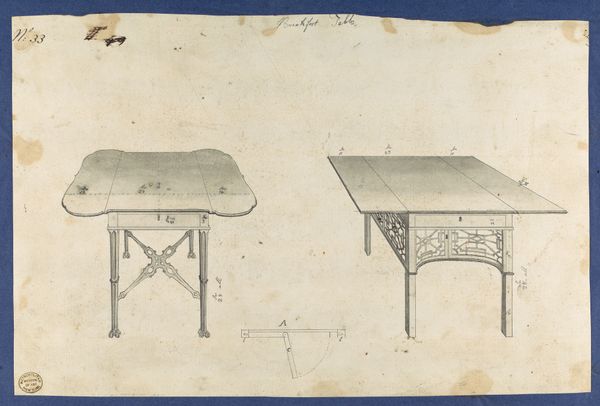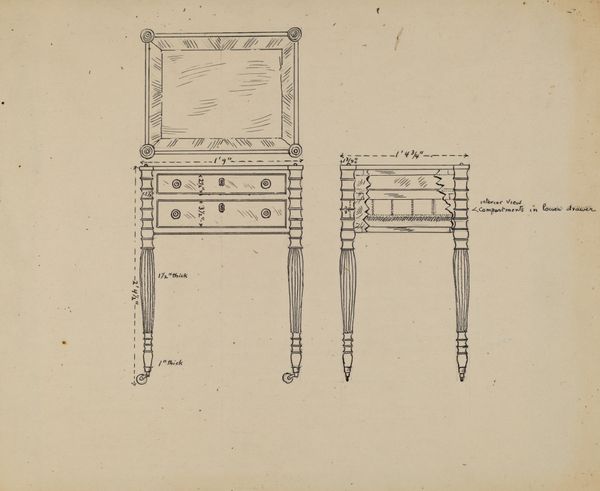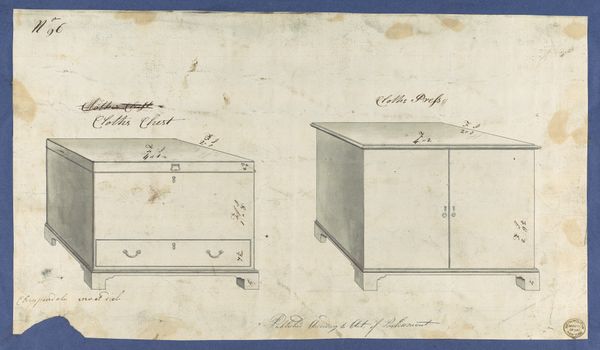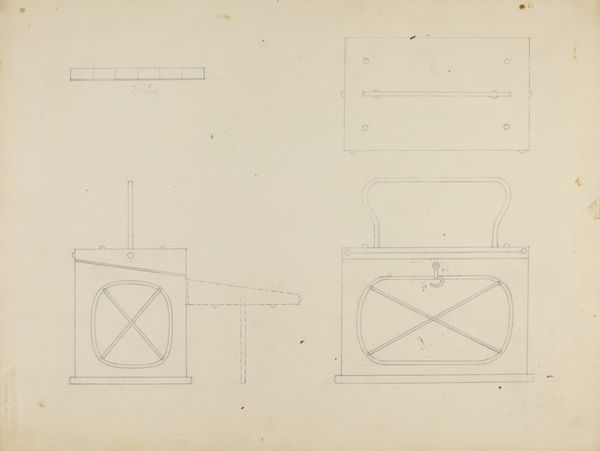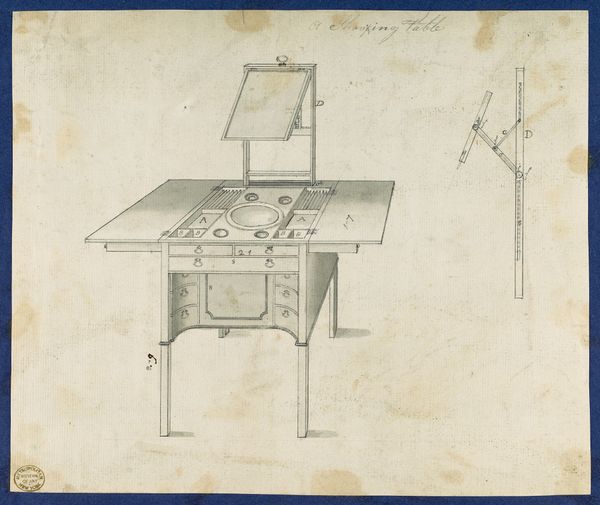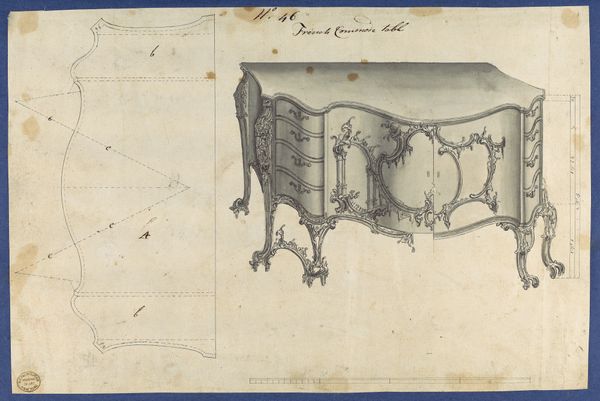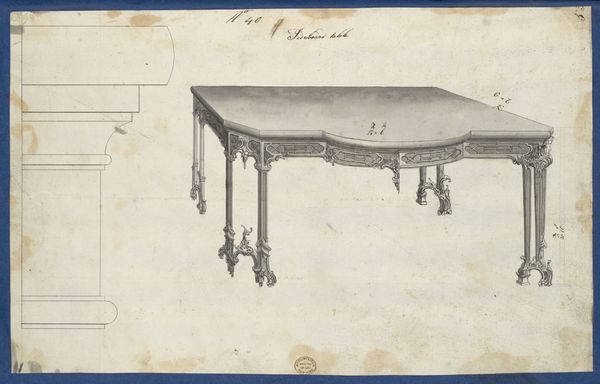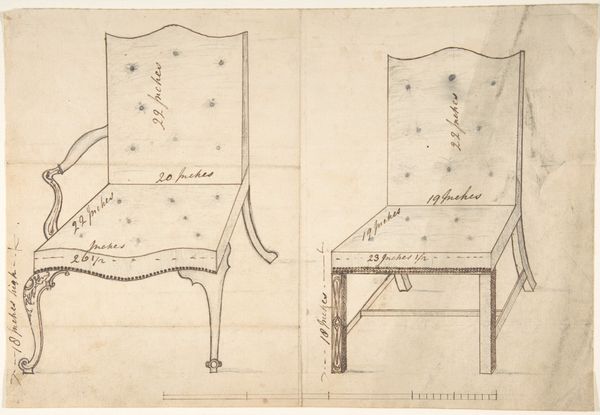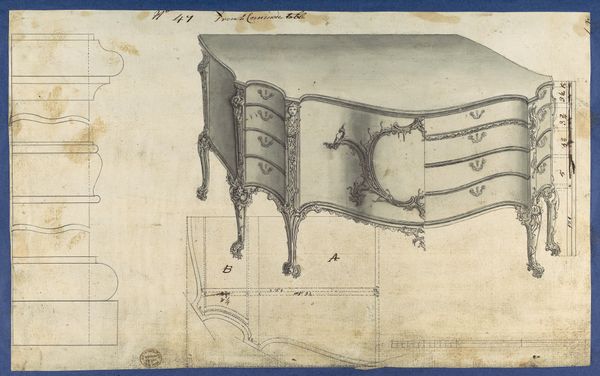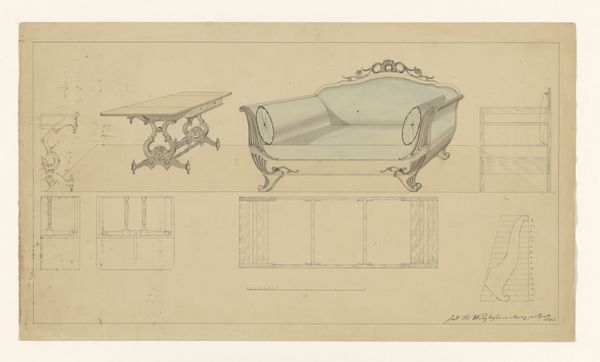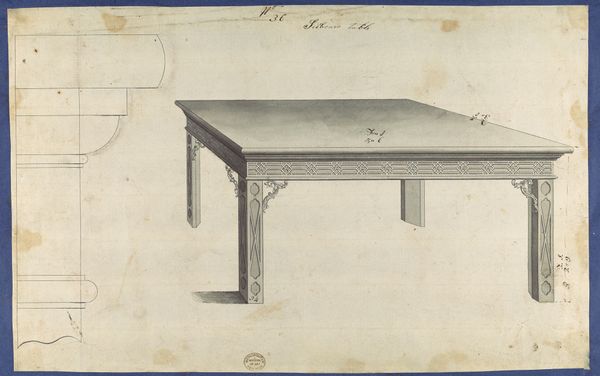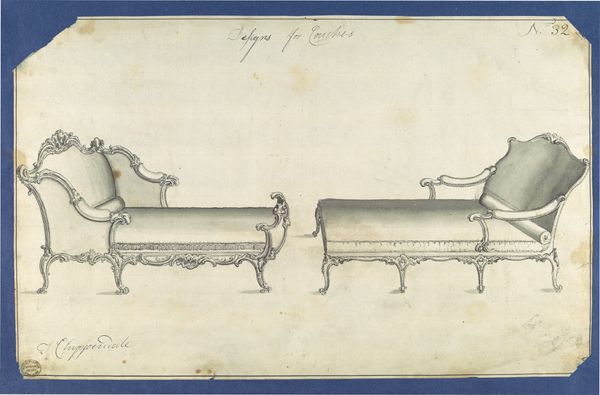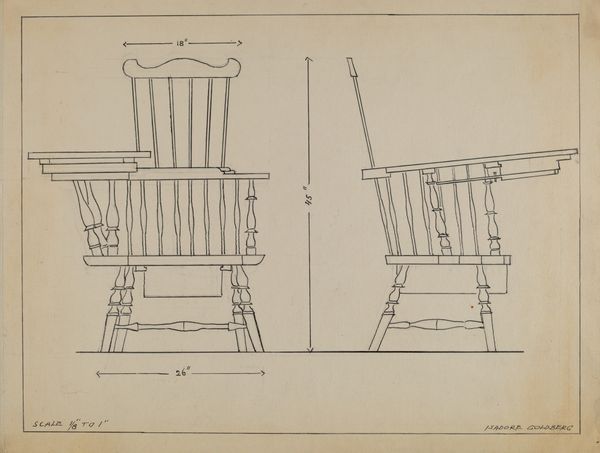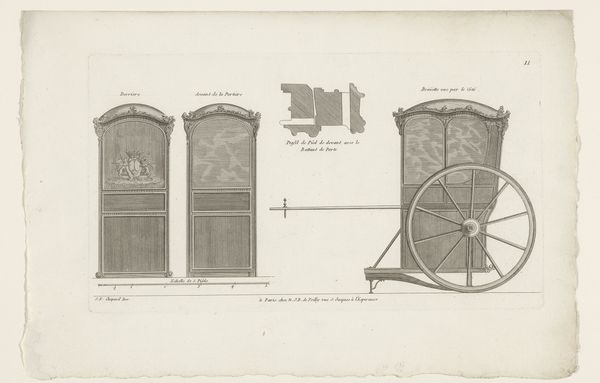
China Tables, from Chippendale Drawings, Vol. II 1754
0:00
0:00
drawing, coloured-pencil, print, paper
#
drawing
#
coloured-pencil
# print
#
furniture
#
paper
#
coloured pencil
#
sketchbook drawing
#
history-painting
Dimensions: sheet: 8 1/8 x 13 1/8 in. (20.7 x 33.4 cm)
Copyright: Public Domain
This sheet, from Thomas Chippendale’s Director, pictures two variations of “China Tables,” conceived around 1760. The design, rendered in pen and ink, would have been a prototype for furniture makers. Notice the contrast in style. One table features straight legs, a simplified apron, and a delicate, almost gothic tracery beneath the tabletop. The other has cabriole legs, a more ornate apron, and fanciful rococo foliage in the same position. Both are intended as luxury goods. While the first hints at mass production, the second speaks to highly skilled carving. Chippendale designed furniture for a rising merchant class in Britain who wanted to show off their wealth. These tables reflect the fashion for chinoiserie, goods imported from East Asia. The furniture maker would have had to master joinery, carving, and finishing, reflecting distinct labor processes. The drawing also played a role in the division of labor. By considering the means of production, we can move beyond mere appreciation to understand the social and economic dynamics embedded in these forms.
Comments
No comments
Be the first to comment and join the conversation on the ultimate creative platform.
